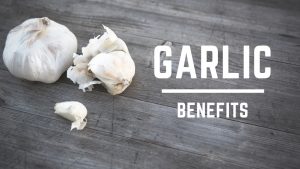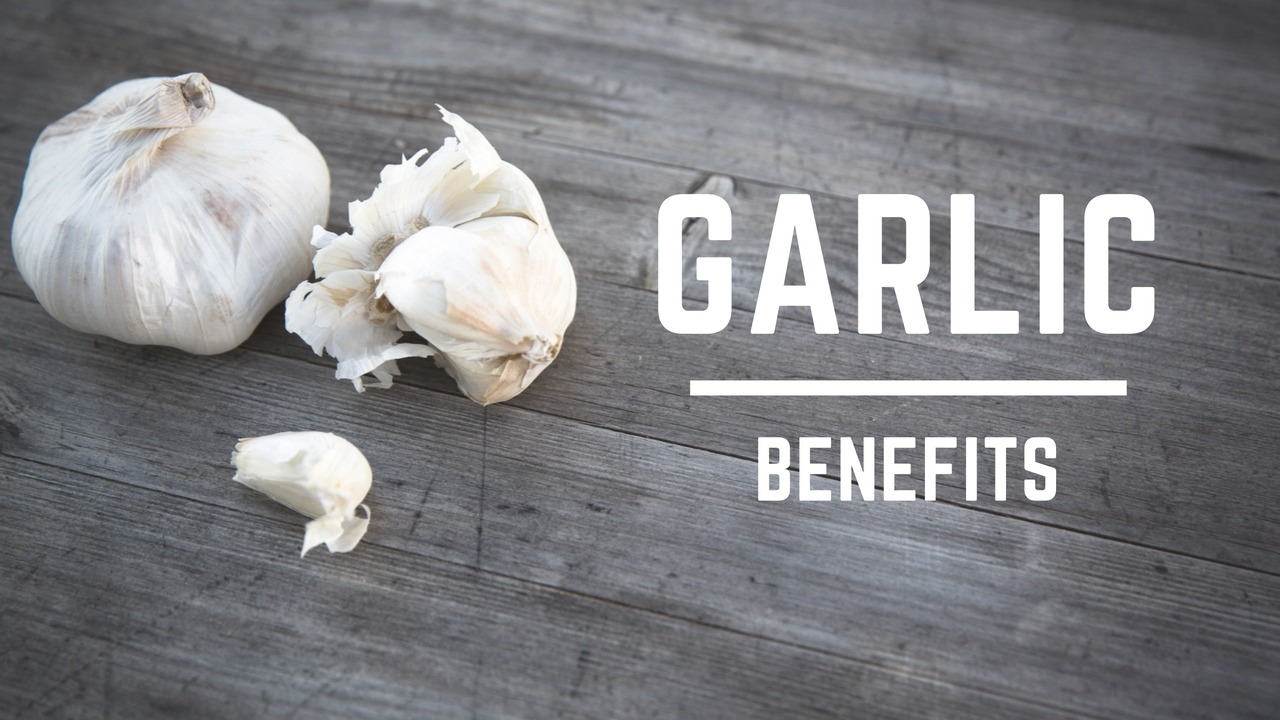 Garlic (Allium sativum) has been used for centuries in Egyptian and European culture as a therapeutic medicine for curing a wide variety of conditions.
Garlic (Allium sativum) has been used for centuries in Egyptian and European culture as a therapeutic medicine for curing a wide variety of conditions.
Greek physician Hippocrates, the father of western medicine prescribed garlic for a variety of medical conditions.
Modern scientific research proves that sulfur compounds have the ability to prevent and cure a wide array of diseases including hypertension, heart diseases, cancer, diabetes and common cold and flu.
Allicin, the active compound in garlic renders the distinct pungent smell to garlic and it is responsible for most of the health benefits of garlic. Allicin enters the body from the digestive tract and spread all over the body. Allicin possesses powerful antibacterial, antifungal and antiviral properties.
Garlic as a home remedy can be used in various forms such as fresh garlic, garlic powder, garlic oil and garlic capsules.
In this article, we have collected all the effective health benefits of garlic that are backed by extensive studies and research along with the detailed composition of garlic and ways to include garlic in your daily diet.
Composition of Garlic
- Amino acids – glutaminic acid, arginine, aspartic acid, leucine, lysine, valine, etc.
- Minerals – manganese, potassium, calcium, phosphorus, magnesium, selenium, sodium, iron, zinc, copper.
- Vitamins – vitamin B6, vitamin C, folic acid, panthotenic acid, niacin.
- Sulphur-containing compounds – aliin, allicin, ajoene, allylpropl, diallyl, trisulfide, sallylcysteine, vinyldithiines, S-allylmercaptocystein.
- Allicin – High in sulfur compound and is responsible for most of the health benefits of garlic. Aliin is converted into allicin with the help of enzyme alliinase.
- Ajoene – Another garlic-derived compound which is produced by allicin condensation. It also possesses a number of health benefits.
- Sugars – glucose and fructose.
10 Verified Benefits of Garlic
1. Reduce blood pressure
Cardiovascular disease such as heart attack and stroke are the biggest killers around the world and high blood pressure is one of the main precursors of cardiovascular diseases. A number of studies on humans have found that garlic supplementation can reduce blood pressure significantly in people suffering from hypertension. One particular study shows that dosage of 600 to 1500 mg of aged garlic extract over a 24 weeks period was as effective as Atenolol, the drug of choice for reducing blood pressure. The polysulfides present in garlic promote the opening and widening of arteries and blood vessels which in turn helps in lowering high blood pressure. Supplement dosage of approximately four cloves of garlic per day is good enough to show desired effects.
2. Lower the risk of heart disease
Most of the research on garlic has been done in relation to its benefits for the cardiovascular system. Food studies on garlic show that garlic extract has clear cardioprotective properties. It helps to lower the level of blood triglycerides and total cholesterol considerably. Garlic appears to lower the level of harmful LDL cholesterol without causing any changes in the level of “good” HDL cholesterol.
The cardioprotective properties of garlic can be linked to one particular disulfide known as ajoene found in garlic. Ajoene has anti-clotting properties, it prevents the platelets from becoming to sticky and lowers the risk of the platelets from clumping together to form a clot. The sulfur-containing compounds in garlic protect the blood cells and blood vessels from unwanted inflammation and oxidative stress which in turn prevents the damage of blood vessel linings and reduces the risk of heart attack and atherosclerosis (hardening of the arteries). It was seen that taking a specific garlic powder supplement two times daily over a 24 months period reduced the progress of the hardening of the arteries.
3. Prevent Alzheimer’s and Dementia
Chronic inflammation and oxidative stress caused by free radicals speed up the aging process in the body and lead to degenerative diseases such as Alzheimer’s and dementia. The powerful antioxidants in garlic support the natural protective mechanisms in the body and provide protection against oxidative damage. High doses of garlic supplements have been shown to increase the level of antioxidant enzymes in the body and reduce oxidative stress significantly. β-amyloid peptide plaques are observed in the central nervous system of Alzheimer’s patients. Deposition of these plaques results in neuronal damage. A study published in the journal of Neurochemistry shows significant neuroprotective and neurorescue properties of aged garlic extract and S-allyl-L-cysteine (SAC), an active compound present in garlic extract.
4. Improve Bone Health
Although there have been no human trails to measure the effects of garlic on bone loss but studies on rodents show that garlic can reduce bone loss by increasing estrogen levels in female rodents. A study done of menopausal women found out that daily dose of dry garlic extract reduced a marker of estrogen deficiency significantly. This study suggests that garlic may be beneficial for improving bone health in women. Garlic is also effective in lowering the levels of osteoarthritis. A team at King’s College London and the University of East Anglia reported in the journal BMC Musculoskeletal Disorders that women whose diets were rich in allium vegetables such as garlic, onions, shallots, etc had lower levels of osteoarthritis.
5. Prevent Cancer
Research on allium vegetables such as garlic show that these vegetables have potent anti-cancer properties. It is believed that the bioactive sulfur compounds in garlic has effects at each stage of cancer formation and can affect certain biological processes that reduce cancer risk. Several mass studies show that there is a link between increased garlic consumption and reduced risk of certain cancers such as stomach, colon, esophagus, pancreas and breast cancer. The antibacterial properties of garlic may have the ability to stop the formation of cancer-causing substances, promote DNA repair and limit cell proliferation. According to a study carried out at the Jiangsu Provincial Center for Disease Control and Prevention in China, people who consumed raw garlic at least twice a week had 44% lower risk of developing lung cancer. Organo-sulfur compounds present in garlic can destroy the cells in glioblastomas, a type of cancerous brain tumour.
6. Control diabetes
Garlic is beneficial for diabetic patients as well. A new study found out that consuming garlic can reduce the level of blood glucose in people with type 2 diabetes. Compounds allicin, allyl propyl disulfide and S-allyl cysteine sulfoxide in garlic raise the level in insulin in blood by preventing the liver’s inactivation of insulin, so that more insulin is available in the body. Garlic also reduces the effects of certain complications related to diabetes such as atherosclerosis and nephropathy and promotes blood circulation. In a study of diabetic rats, the rats received a daily dose of raw garlic extract for sever weeks which resulted in significant reduction of serum glucose, cholesterol and triglycerides levels.
7. Treat common cold and flu
Garlic supplementation improves the function of the immune system and combats cold and flu. A 12-week study found that daily garlic supplementation reduced the number of colds by almost 63% compared to placebo. Those who did not take garlic had much higher likelihood of contracting more than one cold over the 12 week study period. Another study found out that high doses of garlic extract (2.56 grams per day) can reduce the duration of cold or flu by almost 61%. Chemical compound allicin present in garlic is extremely effective in killing a wide range of microorganisms that cause some of the most common infections.
8. Aid detoxification
High levels of sulfur compounds in garlic provide protection against organ damage caused by heavy metal toxicity. A four week study conducted among the employees of a car battery plant who experience excessive exposure to lead found that garlic supplementation reduced the level of lead in the blood by 19% along with certain signs of toxicity such as headaches and high blood pressure. Three doses of garlic every day was much more effective compared to the drug D-penicillamine in reducing the symptoms of metal toxicity. Garlic supports several liver enzymes and promotes the body’s production of glutathione which are critical for detoxification.
9. Prevent Hair Loss
The benefits of garlic for hair need no new introduction. It is especially effective in treating male and female hair loss or alopecia. Mazandaran University of Medical Sciences researchers from Iran tested what happens when people taking corticosteroids for alopecia apply garlic gel to the scalp twice a day for 3 months. It was seen that use of garlic gel significantly improved the therapeutic efficacy of topical corticosteroid medication that was being used for the treatment of alopecia.
10. Aid weight loss
Several lab tests show that garlic has a fat burning effect that helps to reduce weight and treat obesity. In a study published in The Journal of Nutrition in 2011, researchers studied the effects of garlic and fat storage on mice. The mice were fed a high-fat diet for 8 weeks to plump them up. The mice were administered either a garlic supplement or a placebo for the next 7 weeks. It was seen that the mice who were given garlic experienced a reduction in fat and body weight but those who were given the placebo did not undergo any weight loss. Another study published in Nutrition Research and Practice in 2012 stated that postmenopausal women who took aged garlic extract for 3 months experience significant loss of fat and body weight.
Side Effects of Using Garlic:
Garlic is considered safe for most people when it is taken by mouth within the recommended daily dosage.
- Consumption of raw garlic can cause burning sensation in the mouth or stomach, heartburn, gas, nausea, vomiting, body odor and diarrhea.
- Garlic may increase the risk of bleeding because it acts as a blood thinner. Stop taking garlic or garlic supplement at least 2 weeks before a scheduled surgery.
- Food amounts of garlic are safe during pregnancy and breastfeeding, but it should not be taken in medicinal amounts.
- Small amounts of garlic for short period of time are safe for children, but it should not be given in large doses.
- Topical application of raw garlic can cause severe skin irritation. Garlic products such as gels, pastes and creams are safe when applied to the skin.
- Garlic may irritate the gastrointestinal tract, so people with stomach or digestion problems should consume garlic with caution.
- Garlic can lower blood pressure drastically. People with already low blood pressure should be careful while consuming garlic.
Ways to Use Garlic
It is best to use garlic in raw form to make the most of its microbial properties. Cooked garlic also has a lot of nutritional value and high level of antioxidants, but cooking reduces some of its nutritional content.
- You can add raw crushed garlic to soups, stews, roasted meat or vegetables, baked foods.
- You can add minced raw garlic in salad dressing, sauce, salsa and dips.
- You can also use garlic oil topically to treat infections.
Chopping, mincing and crushing the raw garlic activate the alliinase enzymes in garlic which converts into allicin. Allicin then breaks down into various forms of organosulfur compounds.
The recommended daily dose of garlic as per The World Health Organization is 2 to 5 grams (1 clove) of fresh garlic/ 0.4 to 1.2 grams of dried garlic power/ 2 to 5 milligrams of garlic oil/300 to 1,000 milligrams of garlic extract.
For thousands of years, it was believed that garlic has potent medicinal properties and now science has proven most of these claims. The bioactive sulfur compounds in garlic can prevent and fight cancer, protect the heart, improve diabetes and prevent cognitive decline. To make the most of active compounds present in garlic, it is best to consume it raw.









